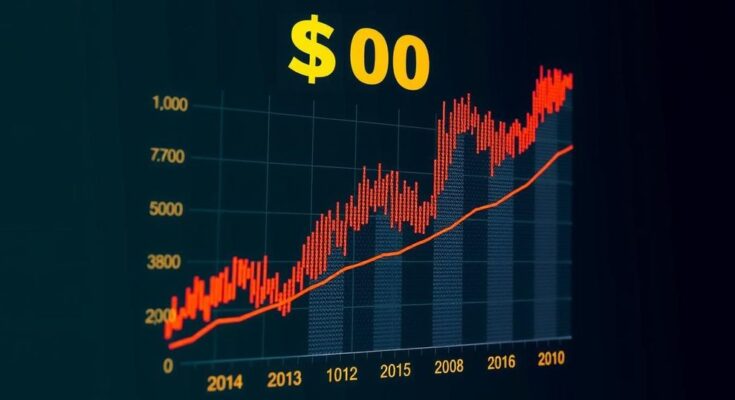Donald Trump promises to erase inflation if re-elected, but economists warn his proposed policies could worsen inflation. His plans include heavy tariffs and mass deportations, possibly raising consumer prices. Studies indicate that these strategies contradict his claims, positioning him as a factor for increased economic strain on American households.
Donald Trump has made bold claims, reassuring voters that, if given another chance, he can eradicate inflation completely. This promise resonates with many Americans still feeling the burden of rising prices from years past. However, mainstream economists refute his assertions, arguing that his proposed policies, including increased tariffs and deportations of migrants, would likely exacerbate inflation rather than eliminate it. In June, a group of 16 Nobel Prize-winning economists expressed their concerns in a letter, forecasting that Trump’s economic plans could reignite inflation, which has significantly declined since it peaked at 9.1% in 2022. The Peterson Institute for International Economics also predicted that if Trump enacts his agenda, inflation could soar to between 6% and 9.3% by 2026. While many economists share skepticism about Vice President Kamala Harris’ economic strategies, they do not expect her policies to fuel inflation as Trump’s would. In contrast, economic analysis indicates that Trump’s proposals could raise inflation rates significantly, causing consumers to feel the pinch in their wallets. The cornerstone of Trump’s economic strategy is imposing tariffs. He believes they protect American jobs and offer various benefits. Despite this, tariffs usually result in higher prices passed onto American consumers, leading many to question their effectiveness while raising concerns about rising costs across the board. Economists, like Kent Smetters from the University of Pennsylvania, agree tariffs are inflationary, but debate the extent of their impact. The effects largely depend on consumer behavior: will they continue purchasing imported goods at inflated prices or opt for domestic alternatives? Trump’s ambitious plan includes imposing a staggering 60% tariff on Chinese imports and additional taxes on other foreign products. The Peterson Institute estimates that such policies could cost the average American household $2,600 annually, an unintended consequence of his protectionist agenda. Moreover, Trump’s claims to lower food prices through restricting imports drew skepticism from experts. Since a large fraction of food consumed in the U.S. is imported, raising import costs may lead to increased grocery bills rather than alleviate them, contradicting his promises. Trump’s aggressive deportation plans are another point of contention. By removing undocumented workers, who assist in job creation and economic stability, experts fear inflation could rise significantly as companies struggle to find employees in an already tight labor market. Concerns extend to Trump’s desire to exert influence over the Federal Reserve. Economists emphasize the importance of maintaining a nonpartisan Fed, as political pressure could hinder its ability to manage inflation effectively. Historically, such interference has led to long-term inflation issues, raising alarms about Trump’s intentions. The Peterson Institute concludes that if Trump reinstates his tariffs and follows through on his plans to influence the Fed, Americans will ultimately bear the financial burdens. His strategy of making foreign producers pay could ironically result in increased costs for U.S. consumers, complicating his narrative. In summary, while Trump assures voters that he can effectively combat inflation, most economists warn that his proposed policies will only worsen the economic situation, creating ripple effects that could elevate consumer prices and destabilize the market.
The article examines the economic implications of Donald Trump’s proposed policies as he campaigns for the presidency. It highlights expert economic opinions that predict Trump’s plans would drive inflation up instead of eliminating it. The discussion surrounding tariffs, immigration policies, and the Federal Reserve’s independence are central to understanding the potential impact Trump’s agenda could have on the economy and consumers.
In conclusion, experts project that Donald Trump’s economic proposals, particularly his plans for tariffs and immigration policies, could significantly raise inflation rates, leading to increased costs for American consumers. While presenting himself as a solution to inflation, his strategies could ultimately result in the opposite effect, reflecting a dire warning about the implications of his economic vision.
Original Source: www.minnpost.com



